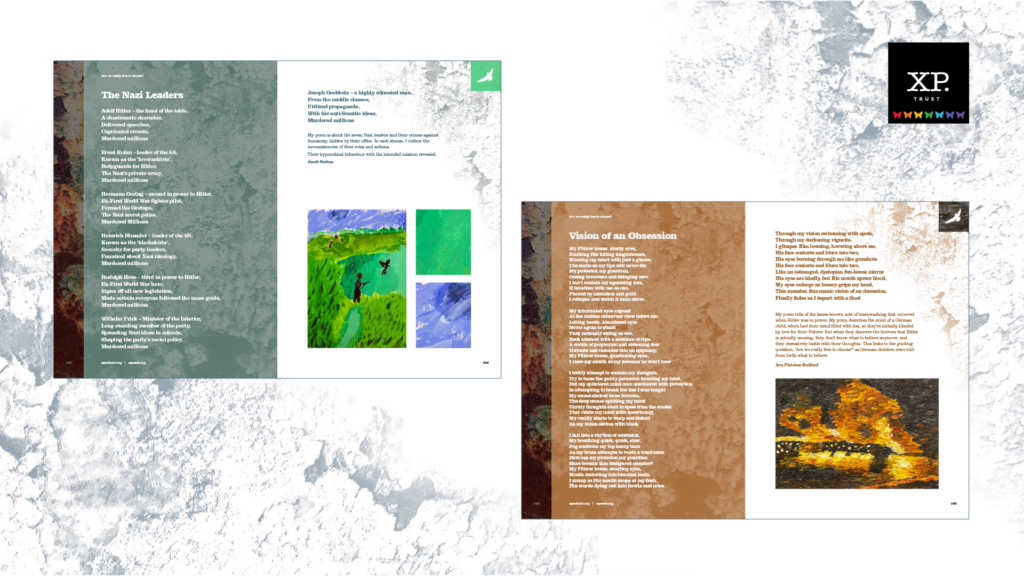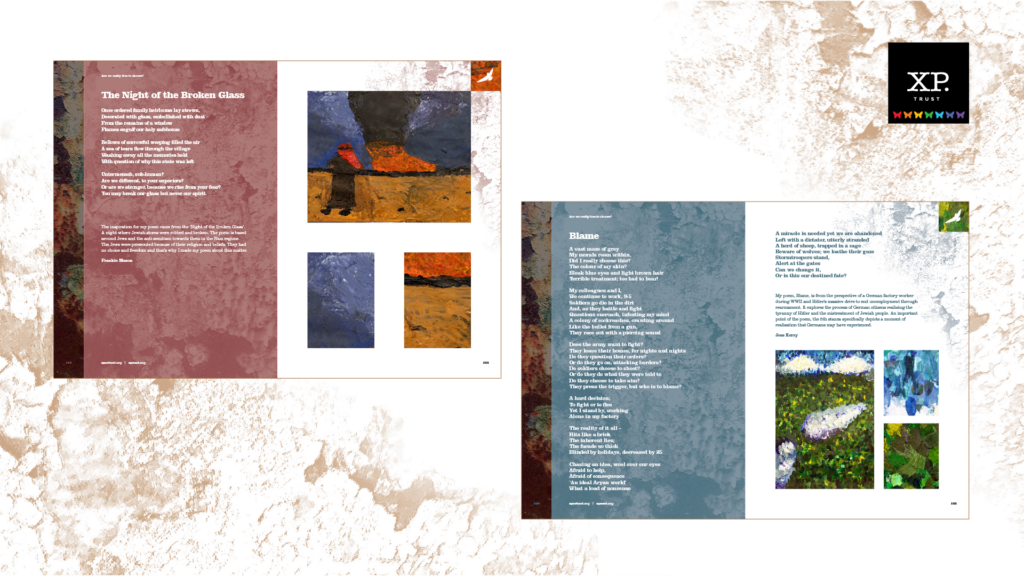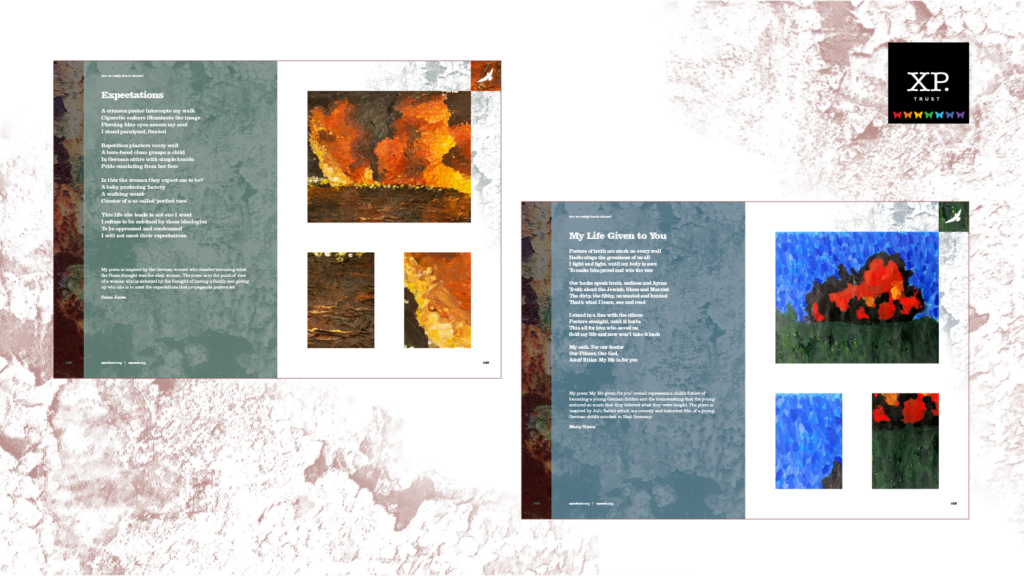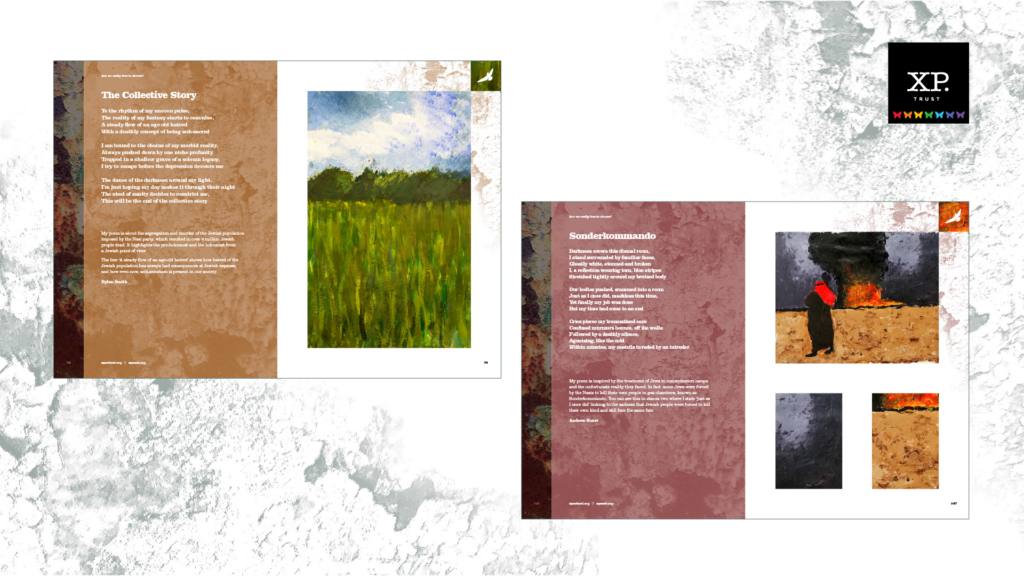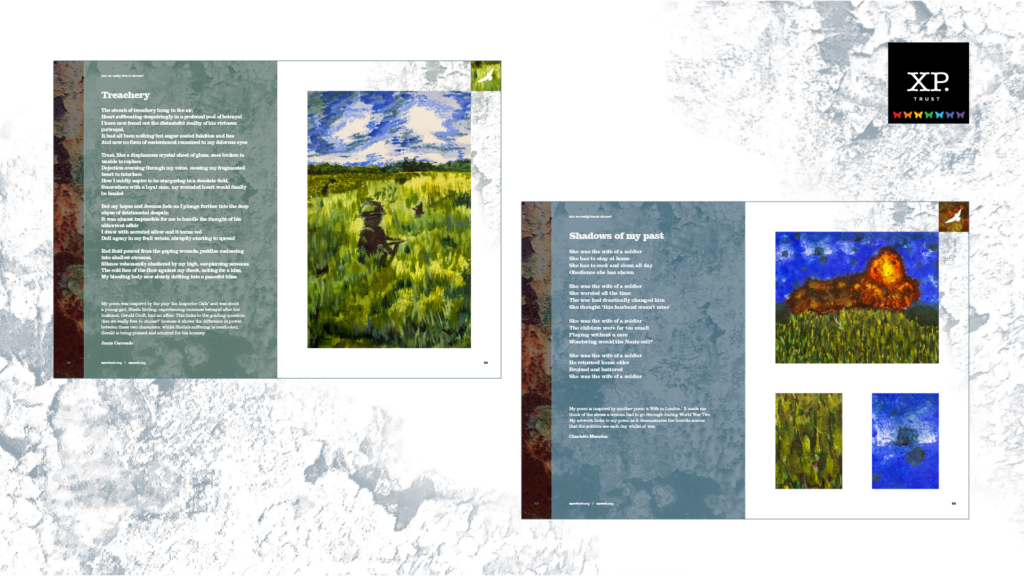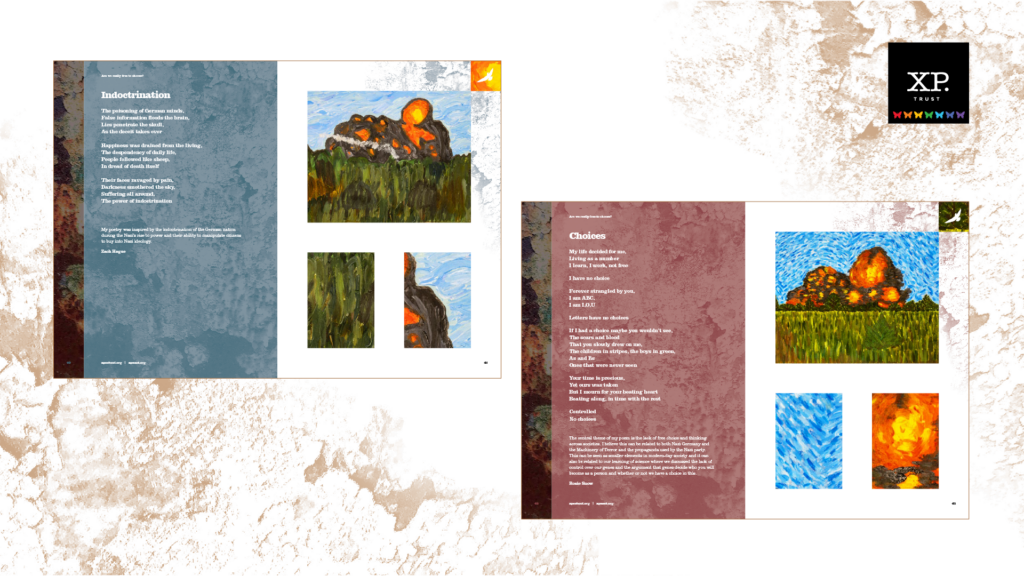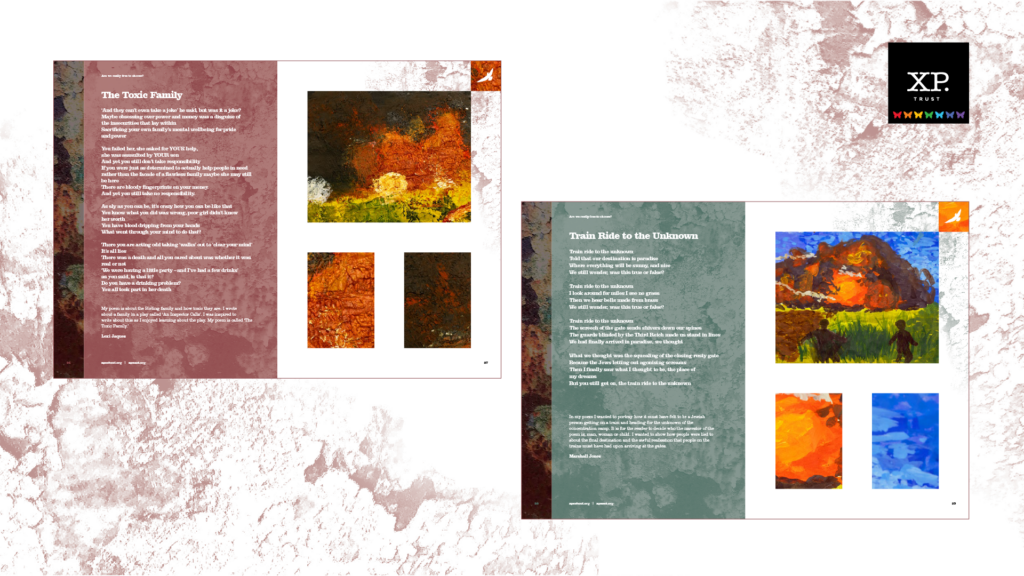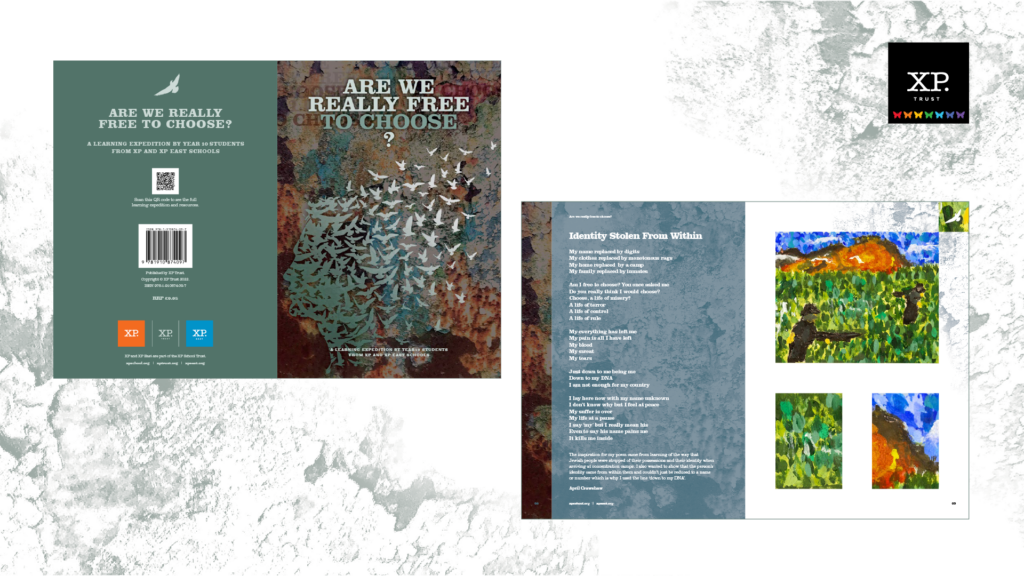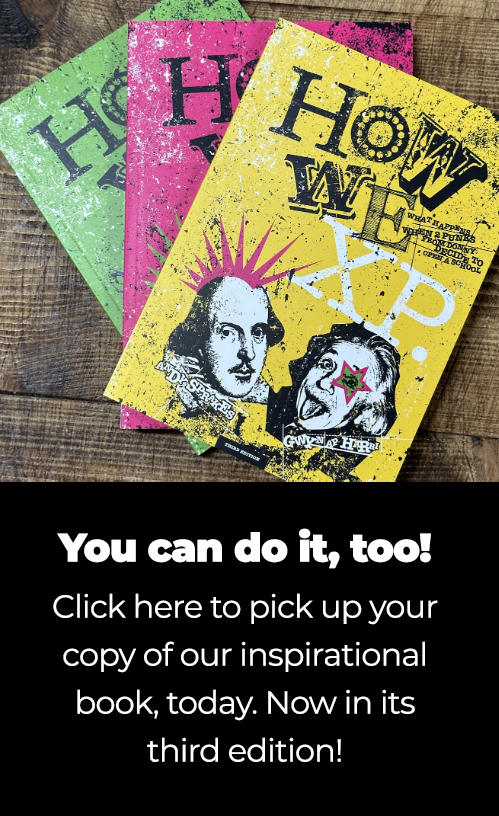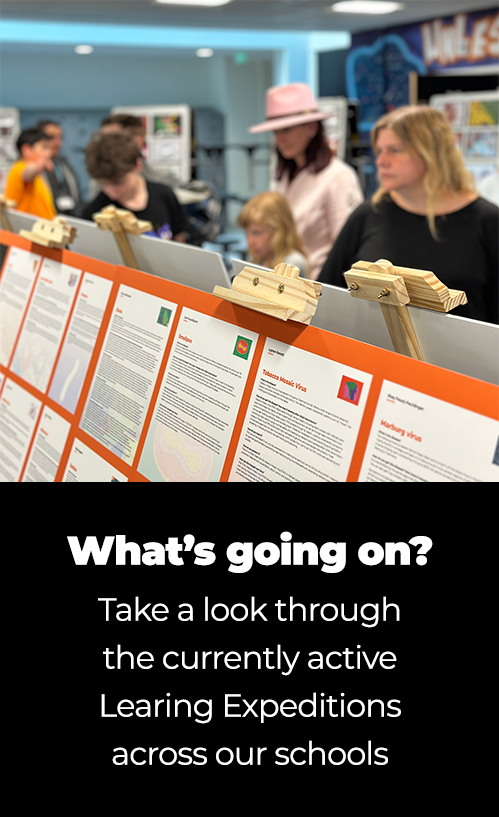GQ: Are we really free to choose?
Expedition lead: Marc Voltaire
Curriculum: HUMAN/STEAM
Phase/Year group: Year 10
Delivery date: Autumn 2021
In September 2021 X25 and E25 studied a joint Human and STEAM expedition which answered the guiding question “Are we really free to choose?”. In order to do this we studied ‘An Inspector Calls’ by J.B. Priestley, Nazi Germany, the science of genetics and evolution alongside political arts.
Immersion
In our immersion students engaged in a number of thought provoking activities which began to give clues about the nature and themes of the expedition. Students began by watching Schindler’s List which was used to highlight some of the horrors of the Nazi regime and we asked students to begin thinking about how this was justified. Students then visited the Royal Armouries museum in Leeds and took part in workshops where they began to understand the implications of WW2. Pupils explored the class system of Edwardian England, and discussed the theme of social responsibility with reference to the modern film ‘I, Daniel Blake’.
Case Studies
In the expedition, we engaged with a range of historical sources that shed light on people’s experiences of living under Nazi rule from 1933-1945. We also sought to understand different interpretations of aspects of life during this period by studying the following five sections outlined below and the interplay between them:
- Dictatorship
- Control and Opposition, 1933–1939
- Changing Lives, 1933–1939
- Germany in War
- Occupation
In English we used the Anchor Text ‘An Inspector Calls’ as a way of exploring the guiding question. The character Eva Smith and the powerful influence of the Birlings helped us pose and frame the question: “Are we really free to choose?”. We explored the context of the early twentieth century when the play is set and written, but also the influence of the Nazi regime on the writer himself and the message of social responsibility, which is echoed throughout the play.
In Science students explored the roots of the Nazi Racial Ideology and how this was used to justify the persecution of so many people during the War. Students look in depth at the science around genetics and natural selection and how this was twisted and incorrectly used by the Nazis to support their ideology. Students looked at the current science around genetics to expose these misconceptions and explode the Nazi ideology.
We studied artists and art movements that arose during the period between the two world wars, focussing on artists that attempted to free themselves from the expectations and restrictions imposed by older or more established views. We learned that art can be a powerful vehicle for change and planned our own work that reflected this idea.
FIeldwork for this expedition linked back to the work of the Holocaust Memorial Centre, Newark, which the students visited last year. For this expedition, our expert was a Holocaust survivor which the students listened to in order to deepen their understanding of the content studied in lesson. We also visited the Imperial War Museum to gain further insight of WW2 and the impacts on different peoples lives.
Final Product
The final product for the expedition is this book which curates students’ poetry and examples of their artwork, both of which were inspired by the content and themes from the expedition and sought to answer the guiding question. Students presented their art and poetry at a poetry slam which was performed in front of families and members of our community.
Learning Targets
The learning targets for this expedition were as follows:
History
LT1: I can demonstrate knowledge and understanding of the key features and characteristics of living under Nazi rule.
LT2: I can explain and analyse historical events and periods studied using second-order historical concepts such as: continuity and change, cause and effect, chronology, empathic understanding and the use of evidence.
LT3: I can analyse, evaluate and use sources to make substantiated judgements about people living under Nazi rule.
LT4: I can analyse, evaluate and make substantiated judgements about interpretations (including how and why interpretations may differ) in the context of Nazi Germany.
Art
LT1: I can create an artist research page
LT2: I can create an artist copy and reflect of the efficacy of the outcome
LT3: I can create a piece of artwork in the style of an artist
English
LT1: I can read and respond to the play ‘An Inspector Calls’, using quotations to support my ideas.
LT2: I can explain the relationship between ‘An Inspector Calls’ and the context it was written in.
LT3: I can adapt my language choices to convey my ideas in a poem.
LT4: I can use presentation skills when sharing my poetry with an audience.
Science
LT1: I can explore the underpinnings of the Nazi ideology and explain scientific misconceptions
LT2: I can explain the process of evolution by natural selection
LT3: I can compare and contrast Nazi eugenics and racial hygiene with selective breeding.
LT4: I can describe reproduction and how this results in genetic variation
LT5: I can explain the principles of homeostasis


